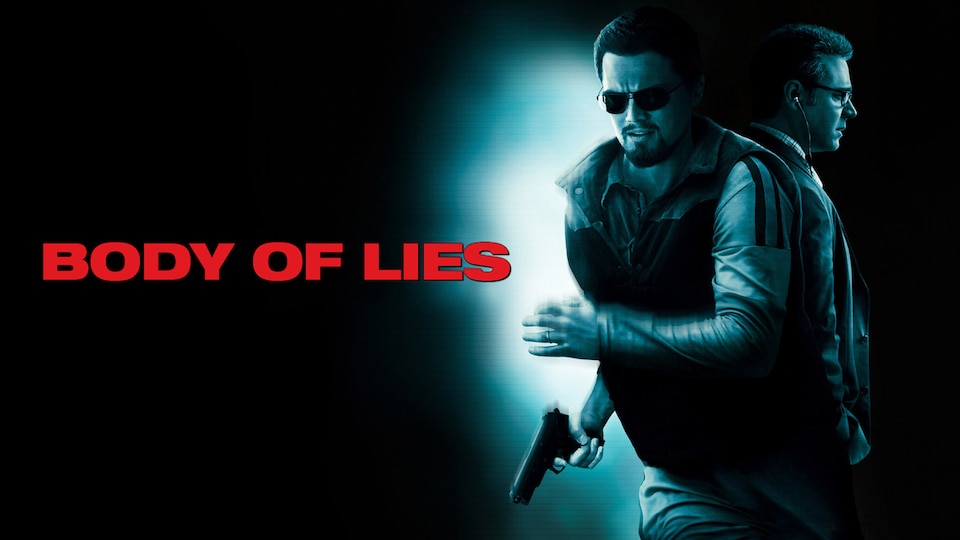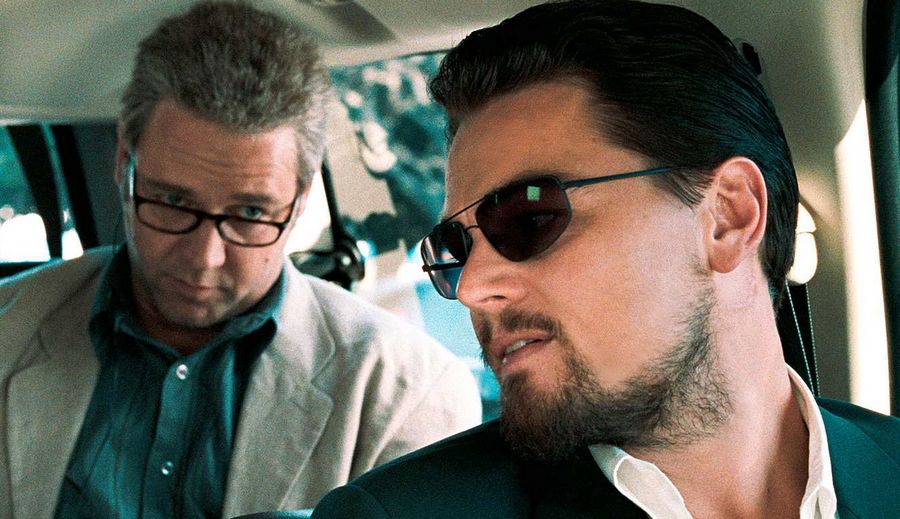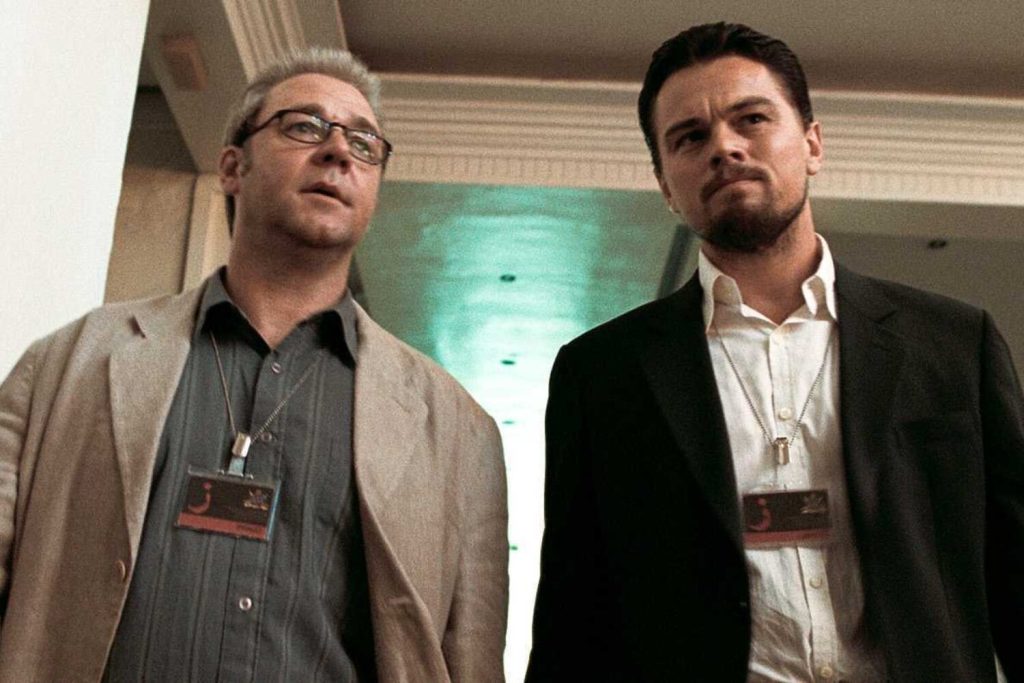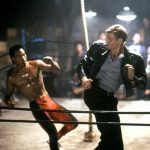Body of Lies (2008)
- nguyentruong
- November 17, 2024

Body of Lies (2008), directed by Ridley Scott and based on the novel by David Ignatius, is a tense and action-packed spy thriller that delves into the murky world of modern intelligence and counterterrorism. The film stars Leonardo DiCaprio as Roger Ferris, a skilled CIA operative working in the Middle East, and Russell Crowe as Ed Hoffman, his manipulative and cold-blooded handler, who oversees operations from the safety of his home in the United States. Together, they navigate a deadly game of cat-and-mouse with terrorist organizations, all while facing the moral and ethical dilemmas that arise in their line of work.
The film is set against the backdrop of the War on Terror and focuses on Ferris’s mission to track down a high-ranking terrorist leader named Al-Saleem, who is responsible for a series of devastating attacks across Europe and the Middle East. To accomplish this, Ferris must infiltrate hostile environments, make risky alliances, and employ elaborate deception tactics—all while navigating the tension between his own instincts and the orders coming from Hoffman, who monitors Ferris via satellite and drones, issuing commands with a detached, almost casual indifference.
Leonardo DiCaprio delivers a powerful and committed performance as Roger Ferris. Ferris is a man on the front lines, constantly putting his life in danger, but also deeply aware of the human cost of his work. DiCaprio portrays him as a conflicted figure—tough, resourceful, and determined, but also compassionate and disillusioned with the moral compromises demanded by his superiors. As Ferris becomes more entangled in the complexities of Middle Eastern politics, he is forced to question his own loyalties and the true cost of the CIA’s strategies.
In contrast, Russell Crowe’s Ed Hoffman represents the impersonal, calculating side of American intelligence operations. Conducting high-stakes missions from the comfort of his suburban home, Hoffman is a master manipulator who sees the world as a chessboard, with people as expendable pawns. Crowe’s portrayal of Hoffman is both chilling and fascinating, capturing the character’s ruthlessness and pragmatism. The dynamic between Ferris and Hoffman highlights the moral conflict at the heart of the story: the clash between on-the-ground reality and the detached decision-making of those who pull the strings from afar.
One of the film’s most compelling elements is Ferris’s relationship with Hani Salaam, the head of Jordanian intelligence, played with charisma and gravitas by Mark Strong. Hani is a highly intelligent, ruthless, and proud operative who values loyalty and integrity above all else. As Ferris attempts to gain his trust, the two men develop a tenuous partnership based on mutual respect, but also one fraught with tension and mistrust. Strong’s performance brings depth and nuance to a character who, while calculating and intimidating, has a strong code of ethics and a deep understanding of the intricate politics of his region.

Ridley Scott’s direction creates a fast-paced, gritty, and often brutal depiction of modern espionage. The film moves swiftly between various locations in the Middle East and Europe, capturing the chaos and danger of Ferris’s missions. Scott effectively portrays the complex and often ambiguous nature of counterterrorism, where lines between allies and enemies are constantly blurred, and even the best intentions can have devastating consequences. The cinematography, helmed by Alexander Witt, is immersive, combining the grit of urban warfare with the beauty and harshness of desert landscapes.
The film explores themes of trust, betrayal, and the moral ambiguities inherent in intelligence work. As Ferris works undercover and risks his life, he becomes increasingly disillusioned with the manipulative tactics used by his superiors, particularly Hoffman. This tension builds to a series of confrontations that force Ferris to choose between following orders and staying true to his own moral code. The constant surveillance and manipulation he faces underscore the dehumanizing nature of modern warfare and intelligence operations, where lives are reduced to mere assets and targets.
Body of Lies also touches on cultural clashes and misunderstandings between the West and the Middle East. Ferris, who tries to build relationships and work with local intelligence agencies, often finds himself at odds with Hoffman’s more heavy-handed, remote-control approach. This clash highlights the difficulties faced by operatives on the ground, who must navigate a complex web of loyalties, cultural dynamics, and political agendas.
The film’s action sequences are intense and well-executed, featuring a mix of shootouts, explosions, and tense undercover operations. However, Body of Lies is not just a typical action thriller; it also delves into the psychological toll of espionage and the ethical dilemmas faced by those involved. The interplay between action and character-driven drama keeps the audience engaged, offering both visceral thrills and thought-provoking commentary on the human cost of global conflicts.
In conclusion, Body of Lies is a gripping and thought-provoking film that explores the dark, morally complex world of modern espionage. Leonardo DiCaprio, Russell Crowe, and Mark Strong deliver standout performances, while Ridley Scott’s direction keeps the tension high and the stakes even higher. The film offers a stark and realistic portrayal of the challenges faced by intelligence operatives, ultimately questioning whether the ends truly justify the means in the relentless pursuit of security and power. Through its blend of action, intrigue, and moral complexity, Body of Lies remains a compelling and relevant entry in the spy thriller genre.











